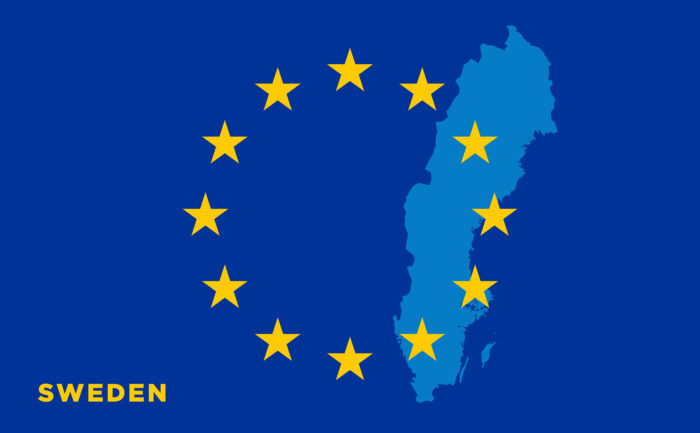Sweden Compliance with Anti Corruption Norms
Sweden's anti-corruption compliance journey sets a global standard. As it approaches a crucial 2024 deadline, the nation reinforces its commitment to transparency and ethics, influencing global anti-corruption efforts and transforming institutional culture towards accountability and democracy.

SwedenCompliance with Greco's Anti-Corruption Recommendations
Sweden is demonstrating a strong commitment to integrity and ethical governance by making impressive progress in enhancing anti-corruption compliance. Sweden has made excellent progress, as evidenced by the recent evaluation report of the Group of States against Corruption (Greco), which addresses nine of the fifteen major recommendations. This demonstrates Sweden's commitment to creating an open and responsible political environment.
Sweden has taken a number of extensive and active measures. They include stringent ethical training programs, strong conflict of interest prevention techniques, and efficient anti-corruption initiatives designed specifically for senior political officials. These policies are always changing, guaranteeing constant watchfulness against corruption across political administrations.
Not with standing these encouraging developments, the research notes many shortcomings. Just three of Greco's suggestions, such as creating a thorough anti-corruption action plan, have been fully carried out. In order for Sweden to fully meet its anti-corruption compliance targets, several issues must be addressed.
Remarkably, the Swedish Police Authority complies with every proposal made in the study. This entails putting in place a whistleblower mechanism, developing an ethical policy, and incorporating ethics into professional growth and training. These initiatives are essential to establishing an honest culture in a significant law enforcement organization.
The research does, however, underscore the necessity of more improvements at the highest echelons of political leadership. To maintain confidence in public institutions and make sure that leaders uphold the highest standards of ethical conduct, it is imperative to strengthen transparency in interactions with lobbyists and to impose stringent background checks on top executives.
Anti-Corruption Compliance: Sweden's Progressive Journey Toward Ethical Governance
On the international scene, Sweden's commitment to strengthening anti-corruption compliance is a shining example of morality and ethical leadership. Sweden has made significant progress in putting most of the main recommendations of the Group of States against Corruption (Greco) into practice, according to the second evaluation report. This important development demonstrates Sweden's steadfast dedication to promoting an open and responsible political climate. Sweden's embrace of this journey not only satisfies international anti-corruption criteria, but it also fortifies its position as a global leader in actively battling corruption and fostering transparency. This trip is a reflection of Sweden's realization that effective anti-corruption initiatives require more than just compliance; they entail a sincere dedication to changing the moral climate of governance across the board.
Building a Transparent Political Environment Through Comprehensive Strategies
Sweden's comprehensive and varied approaches to promoting an open political atmosphere make it stand out. The execution of strict ethical training programs, which form the basis of Sweden's anti-corruption compliance activities, is a crucial component of this endeavor. These programs are designed to give government officials—especially those in high-ranking positions—a deep understanding of ethical principles and provide them with the skills necessary to resolve difficult moral conundrums.
Furthermore, Sweden has made great efforts to create effective conflict of interest prevention plans. These tactics are essential in ensuring that public servants put justice and honesty ahead of their own interests when making judgments. This is especially important in high-stakes political settings when conflicts of interest are more likely to arise.
A particular emphasis has been on customizing anti-corruption policies to meet the particular difficulties that people in prominent political roles encounter. Sweden has put in place specific procedures to make sure that those in positions of authority maintain the highest standards of integrity because they understand that ethical behavior sets the tone. It's important to note that these metrics are dynamic and constantly refined to take into account shifting political tenure dynamics and changes in the field of international ethics. Sweden's anti-corruption policies are kept effective and current by this dynamic approach, which also reinforces a culture of integrity at all levels of government and encourages ongoing vigilance against corruption.
Addressing Challenges in Anti-Corruption Compliance
Although Sweden's attempts to comply with anti-corruption laws have progressed well, the Greco report highlights certain areas that still need work. Sweden must overcome these obstacles in order to achieve its compliance goals.
- Development of a Comprehensive Anti-Corruption Action Plan:
- A structured approach to implementing and monitoring anti-corruption measures.
- Clear timelines and responsibilities for each aspect of the plan.
- Partially Implemented Recommendations:
- Enhancing mechanisms for public accountability.
- Strengthening regulations around political financing.
- Improving the effectiveness of anti-corruption bodies.
- Recommendations Yet to be Addressed:
- Establishing more stringent rules for conflict of interest.
- Increasing transparency in governmental decision-making processes.
- Expanding the scope of anti-corruption education and awareness programs.
These initiatives are crucial stepping stones towards achieving comprehensive anti-corruption compliance in Sweden.
Role of the Swedish Police Authority in Anti-Corruption Compliance
The Swedish Police Authority has set a benchmark in anti-corruption compliance by fully adhering to the directed recommendations:
- Adoption of an Ethical Policy:
- Creating a framework for ethical behavior and decision-making.
- Ensuring that all officers understand and commit to high integrity standards.
- Establishing a Whistleblowing Mechanism:
- Providing a secure and confidential channel for reporting unethical conduct.
- Encouraging transparency and accountability within the force.
- Integrating Ethics into Training and Development:
- Regular ethics training for new recruits and existing staff.
- Ongoing professional development programs focusing on ethical dilemmas and integrity.
These actions play a major role in fostering an ethical culture in one of the most important law enforcement organizations in the country.
Enhancing Leadership Transparency for Anti-Corruption Compliance
The report emphasizes how important it is for Sweden's leading political figures to be more transparent. Enforcing ethical leadership and bolstering public trust require the following actions to be taken:
- Transparency in Dealings with Lobbyists:
- Establishing clear guidelines and disclosure requirements for interactions with lobbyists.
- Monitoring and reporting on lobbyist activities and their influence on policy decisions.
- Rigorous Background Checks for Top Executives:
- Conducting comprehensive background checks for candidates for high-level positions.
- Assessing their track record in ethical conduct and integrity.
Maintaining high standards of moral behavior and bolstering the legitimacy of Sweden's leadership depend heavily on these acts. Sweden may bolster its standing as a global leader in anti-corruption compliance by concentrating on these areas.
The Future of Anti-Corruption Compliance in Sweden: A Commitment Beyond 2024
With the deadline of June 30, 2024, quickly approaching, Sweden's unwavering commitment to anti-corruption compliance remains a ray of light in the worldwide campaign against corruption. This critical turning point in Sweden's history is more than just a means of fulfilling an obligation; it's a step toward sustained dedication. This time frame represents an important window of opportunity for introspection, evaluation, and future planning.
Sweden is a leader in transparent and ethical administration because of its continuous efforts to strengthen anti-corruption measures. The nation's pledge sets an example for other countries to follow and is proof of its commitment to ongoing development in the field of anti-corruption compliance.
Broader Implications of Sweden's Anti-Corruption Compliance Efforts Globally
The repercussions of Sweden's committed efforts to fully comply with the Group of States against Corruption's (Greco) recommendations go well beyond national boundaries. This important achievement is likely to improve Sweden's reputation internationally, particularly in light of the increased attention being paid to anti-corruption campaigns on a worldwide scale.
A measurable decline in corruption-related problems could result from anticipated complete compliance, which would increase public confidence in political institutions. Furthermore, it is anticipated to lead to the effective use of public resources, which are frequently harmed by unethical behavior. The advancement in anti-corruption compliance highlights the vital significance of preserving a continuous and adaptable strategy in the fight against corruption. It highlights the need for a cultural revolution that prioritizes lifelong learning and flexibility in response to emerging issues in ethics and governance.
Transforming Institutional Culture Through Anti-Corruption Compliance
Sweden's path to anti-corruption compliance is centered on the significant institutional culture change. The remaining suggestions emphasize the critical need for ongoing openness and strong limits on power, particularly at the top levels of political leadership. These components are essential to preserving a robust, robust democracy. Sweden's achievements here indicate a significant movement in the direction of making openness, responsibility, and moral behavior the standard in society.
Read More

Reduce your
compliance risks


